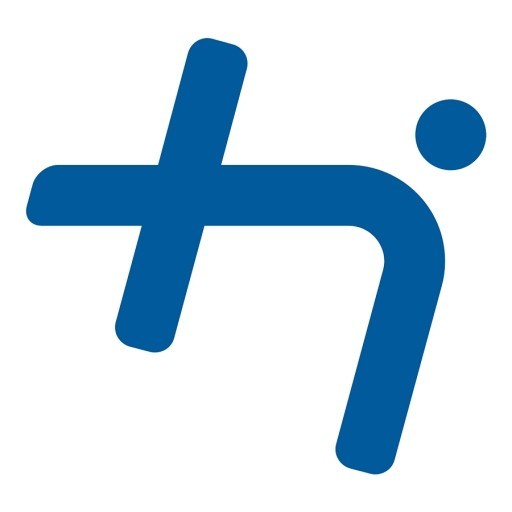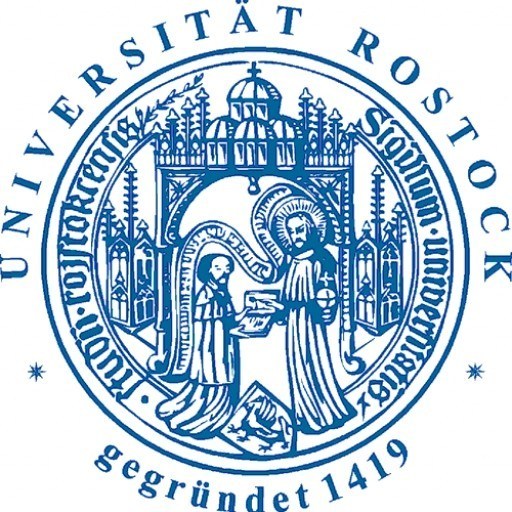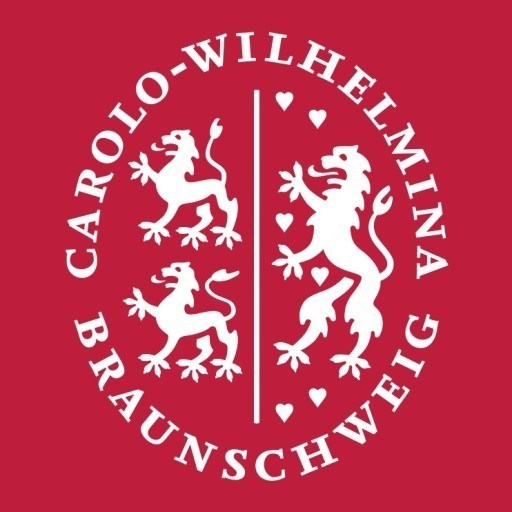Photos of university / #tukaiserslautern
This is a joint Master's degree programme under Erasmus+:
Erasmus+ is the flagship of the European excellence programmes in university education. Selected programmes receive substantial co-funding from the European Commission (EC). They are thus able to offer scholarships to their students. With its decision to select EMECS for the second time, the EC has rewarded the high academic quality and reputation of the programme.
The European Master in Embedded Computing Systems (EMECS) is designed to educate Bachelor's graduates of electrical and computer engineering and computer science as well as graduates from related disciplines to become experts in the field of embedded computing systems.
EMECS is a two-year Master's programme (120 ECTS credits) jointly organised by the Technische Universität Kaiserslautern (Germany), the University of Southampton (UK), and the Norwegian University of Science and Technology (Norway).
EMECS students can conduct their studies at any two of these three participating institutions. Upon successful completion of the programme, they will earn a joint degree issued by all three partner universities.
Students participating in this programme will be trained in three major areas:
Erasmus+ is the flagship of the European excellence programmes in university education. Selected programmes receive substantial co-funding from the European Commission (EC). They are thus able to offer scholarships to their students. With its decision to select EMECS for the second time, the EC has rewarded the high academic quality and reputation of the programme.
The European Master in Embedded Computing Systems (EMECS) is designed to educate Bachelor's graduates of electrical and computer engineering and computer science as well as graduates from related disciplines to become experts in the field of embedded computing systems.
EMECS is a two-year Master's programme (120 ECTS credits) jointly organised by the Technische Universität Kaiserslautern (Germany), the University of Southampton (UK), and the Norwegian University of Science and Technology (Norway).
EMECS students can conduct their studies at any two of these three participating institutions. Upon successful completion of the programme, they will earn a joint degree issued by all three partner universities.
Students participating in this programme will be trained in three major areas:
- Hardware architectures of embedded systems
- System-on-chip design
- System software
Educational organisation
The curriculum consists of a core programme with three study areas called "Embedded System (ES) Hardware Architectures", "System Software" and "System-on-Chip (SoC) Design Methodology". The three partner universities have agreed on the contents of these core study areas. The consortium ensures that the programme is fully integrated and permits a high degree of student mobility.All teaching modules of the core programme are mandatory for all students and need to be finished within the first year of study at one of the partner universities. The core programme guarantees that all students are brought to an equal educational level regarding basic principles of embedded system design and architecture. After completion of the core programme, no matter at which partner institution, the student will be able to profit fully from the elective programme and project activities offered throughout the consortium.
The elective programme consists of the four elective study areas called "Advanced Topics in Embedded Systems", "Communication & Signal Processing", "Automation & Control" and "Microsystems" offered by all partner universities. Each partner university contributes a number of teaching modules (including project work) to each elective study area. The teaching modules within the elective study area reflect specific local strengths, special application areas, design methodologies and architectures of embedded systems.
There are no mandatory teaching modules in the elective programme. Each student will be assigned a supervisor at each of the two partner universities that he or she attends. Based on the elective programme, an individual study plan is elaborated and mutually agreed on between the student and the supervisors.
The last part of the curriculum during the second year of study is dedicated to a Master's thesis. While the study project can be chosen in any teaching area of the elective programme, the Master's thesis always deals with an advanced topic in the embedded systems area. The Master's thesis is typically embedded into larger projects conducted by the local research centres or together with industry. The topic of the Master's thesis is determined during the second year of studies.
The partners' specific core programmes and even more so their elective programmes reflect particular profiles and research specialisations of the individual universities. The different profiles of the universities in the area of embedded systems, their focus on different design layers of System-on-Chip and their industrial involvement in different application industries provide students with unique insights into this heterogeneous field.
Study abroad unit(s)
Every student spends two consecutive semesters at two institutions of the consortium and earns about 60 ECTS credits at each institution. Due to the binding definition of a core programme, no formal restrictions exist regarding the possible choices and the order of institutions within the consortium. This choice will only be influenced by individual student interest and partner profiles. Each mobility phase will start with a prep phase (including a language course in Germany and Norway). Applicants can express their mobility preferences on the application form. The consortium will attempt to respect these wishes, but may also have to make adjustments for a balanced distribution of students.Course objectives
Embedded system design is a field that leverages results from several engineering disciplines as well as from computer science.Successful embedded system design requires a comprehensive understanding of the overall system architecture involving hardware and software components as well as of its complex communication structures. This broad knowledge must come along with comprehensive skills on how to implement embedded system components as System-on-Chip. Due to the application-specific nature of embedded system design, it is also imperative to have a good understanding of the application domain where the embedded system is to be deployed, such as a telecom application. Additionally, an embedded system engineer is required to be a specialist in a specific area such as state-of-the-art microelectronic system design, hardware architectures, system software (operating systems) or architecture of application software. This combination of general system knowledge along with highly specialised expertise in areas of different disciplines is a particular challenge in embedded system design and is part of this programme.
Language requirements
Applicants need to prove that they have sufficient fluency in English. We normally ask for IELTS 6.5 overall with at least 6.0 in each competency. This corresponds to a TOEFL result with a score of about 600 paper-based/250 computer-based/95 Internet-based.Academic requirements
Applicants must hold at least a BSc degree (or equivalent) in electrical engineering, computer engineering, computer science or a related programme.The grade average of the previous studies should prove a high qualification of the applicant. This will normally be the case for a grade average of "B" or better in terms of the ECTS grading scale.
Applicants need to prove that they have sufficient fluency in English. We normally ask for IELTS 6.5 overall with at least 6.0 in each competency. This corresponds to a TOEFL result with a score of about 600 paper-based/250 computer-based/95 Internet-based test.
Applicants must show that they are highly motivated for the Embedded Computing Systems programme by writing a short letter of motivation.
The application must be supported by two letters of recommendation.
For more details about the application process and required documents, please visit: http://www.emecs.eu/admission/apply-now
Enrolment fees
Enrolment fee amounts to about 220 EUR per semester at TU Kaiserslautern. This fee includes a semester ticket covering public transport in Kaiserslautern and surroundings (up to 100 km).The semester fee at Norwegian University of Science and Technology is about 510 NOK/55 EUR and finances a variety of student welfare services.
There are no specific enrolment fees at University of Southampton, as they have tuition fees.
Costs of living
The estimated living costs may differ between the participating universities.In Kaiserslautern, we estimate monthly costs of about 700-800 EUR to cover living expenses, e.g. accommodation (300 EUR), food (approx. 200 EUR), telephone, Internet, TV & Co (50 EUR), clothing (100 EUR), classroom supplies (50 EUR).
In Trondheim and in Southampton, costs of living are somewhat higher, about 900-1,000 EUR.
More information can be found here: http://www.emecs.eu/student-life
Job opportunities
Student assistantships are available on a competitive basis. Excellent students have good chances of finding jobs in research projects, but these are not usually granted in advance. Support in finding a job as a student assistant is available through the offices of International Affairs, student service teams, or through local platforms.Arrival support
EMECS students receive individual support before, during, and after their stay in Kaiserslautern, Trondheim or Southampton.Effective pre-arrival communication helps to handle application, visa, residence permit, and housing affairs. The respective local student service teams will help the students to settle into and become part of the university's community.
For example, at University of Kaiserslautern the welcome package from the Department of International Affairs ISGS includes pick-up from the train station and drop-off at the student's apartment as well as support with first shopping and highly individualised support in administrative and organisational issues, e.g. enrolment, registration with local authorities, opening a bank account and insurance matters. Students start with the ISGS Orientation Course - a prelude to German communication, academic culture and daily life. This course is offered twice a year prior to the start of the lecture period (6-8 weeks). It includes intensive language training, administrative support as well as cultural and social events.
Please find out more about the respective support at all partner universities here: http://www.emecs.eu/student-life
Services and support for international students
The EMECS consortium offers a variety of cultural and social events as well as extracurricular activities enhancing professional skills - such as workshops in academic culture or intercultural communication.All three partner universities provide broad student services. Students will receive a warm welcome when they arrive at any university and receive plenty of support to lead their student career to success. Starting with the orientation weeks, students can participate in special programmes, events, and talks, which help new students find their way around and make new friends.
Besides the individual support during the pre-arrival phase, students can especially profit from continuing support during their studies. Academic introduction events, mentoring, and research seminars will enhance individual learning.
Further information can be found here: http://www.emecs.eu/student-life
Accommodation
Students will be contacted by the respective host institution of the relevant EMECS mobility phases. Individual support will be provided and the local teams will help to find best matching solution for each student.In Trondheim, the Office of International Relations is responsible for allocating student housing to international students. The majority of our students live in residence halls located on or close to campus.
Unlike in other countries, German dormitories are not owned or operated by the university, but by external institutions. The "Studierendenwerk" operates several large halls of residence in Kaiserslautern. Students submit housing applications directly to the Studierendenwerk. There is typically a waiting period for housing in the residence halls. For international Master's or PhD students, the Department of International Affairs ISGS aims to arrange accommodation in these residence halls or in private accommodation within its pre-arrival service.
The University of Southampton offers a large variety of rooms in halls of residence to suit every student's needs. Additionally, private accommodations can be rented.
Further links and information can be found here: http://www.emecs.eu/student-life









